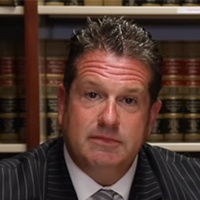East Norwich Criminal Lawyer, New York
Sponsored Law Firm
-
 x
x

Click For More Info:
-
Law Office Of Vincent Bianco Esq., P.C.
114 Old Country Road Suite 560 Mineola, NY 11501» view mapCriminal Law Where Every Client Matters
Vincent Bianco is a practicing lawyer in the state of New York who handles Criminal matters.
800-779-3490
Darren M. Shapiro
✓ VERIFIEDDivorce & Family Law, Lawsuit & Dispute, Criminal, Juvenile Law, Real Estate
Since the firm's inception, Darren M. Shapiro, Esq. has been focusing on matrimonial and family law. His background in civil litigation and criminal d... (more)
Jeffrey Edward Litman
✓ VERIFIEDAccident & Injury, Bankruptcy & Debt, Criminal, Estate
Eugene Litman, Esq. established Litman & Litman, P.C. in 1958. Eugene raised his four sons with aspirations that they would join him in the legal prof... (more)
Thomas H. Pillari
Real Estate, Lawsuit & Dispute, Divorce & Family Law, Criminal
Status: In Good Standing
James Meaney
Bankruptcy & Debt, Real Estate, Criminal, Divorce & Family Law
Status: In Good Standing Licensed: 20 Years
FREE CONSULTATION
CONTACTMichael A. Montesano
Landlord-Tenant, Litigation, Criminal
Status: In Good Standing Licensed: 35 Years
Michael A. Montesano
Criminal, Constitutional Law, Contract, Business Organization
Status: In Good Standing Licensed: 35 Years
Antonietta D Bruno
Real Estate, Motor Vehicle, Divorce, Criminal
Status: In Good Standing Licensed: 20 Years
John L. Maccarone
Real Estate, Estate, Divorce & Family Law, Criminal
Status: In Good Standing Licensed: 40 Years
 Vincent Bianco Mineola, NY
Vincent Bianco Mineola, NY AboutLaw Office of Vincent Bianco, Esq., P.C.
AboutLaw Office of Vincent Bianco, Esq., P.C. Practice AreasExpertise
Practice AreasExpertise



